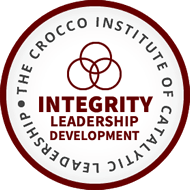Every leader has a unique sphere of influence. A leader’s sphere of influence is comprised of those people a leader comes in contact with on a regular, consistent, and ongoing basis. No two leaders have the same exact sphere of influence. Every leader is entrusted with a specific group of people to lead in a distinct setting that is unlike any other. In reality, all leaders have multiple spheres of influence. We have a relational sphere of influence in both our professional, and our personal lives. This article will focus primarily on a leader’s professional sphere of influence. One of the practical benefits of bringing the concept of “sphere of influence” to our leadership is that it reminds us that the concept of leadership should always be equated with the concept of influence. The essence of leadership is influence. If one who is placed in a position of leadership, does not possess the ability to influence others, we can safely conclude that they are not leaders. If you can’t influence others to follow your leadership, it is not possible to lead others.
One of the most difficult challenges any leader is ever confronted with is the challenge of providing “balanced” leadership to others. In recent years, many books have been written encouraging leaders to lead from their strengths, and areas of giftedness. I believe and agree, that as a general rule, this is wise counsel for any leader. What is often lacking in this emphasis is the need for leaders to become balanced in how they play to their strengths in their attempts to lead their people. Any strength that a leader might possess, when taken to an extreme, can actually neutralize that strength, while negatively impacting others. For example, an intensely results-oriented leader can fail to value people, which often results in leaving a trail of bodies behind them. An overly confident leader can lead with an arrogant sense of superiority leading to employee retention issues. It is not uncommon for a highly gifted and driven entrepreneurial leader to struggle with listening to others. As leaders, we must learn to manage our strengths.
In an attempt to consider how we might bring more balanced leadership to those in our sphere of influence, let’s consider how balance factors into the character qualities our people most need from us as their leaders. Our people need leaders who lead with integrity. This is the rare combination of honesty and transparency, that is neither overly-sensitive or overly-offensive. Our people need leaders who lead with courage. This is the rare combination of a brave and bold spirit, that is neither overly-rash, or overly-timid. Our people need leaders who lead with resilience. This is the rare combination of a persevering and tenacious spirit, that is neither overly-vacillating, or overly-obstinate. Our people need leaders who lead with generosity. This is the rare combination of unselfishness and tolerance, that is neither overly-indulgent, or overly-stingy. Our people need leaders who lead with concern. This is the rare combination of interest and attentiveness, that is neither overly-involved, or overly-indifferent.
Most of us have never been challenged about the need to manage our strengths in a balanced manner in our sphere of influence. Any strength taken to an extreme can become a liability. If we only focus on our strengths, as many propose, we may limit ourselves to remaining inside our comfort zones, and develop leadership blind spots. Our leadership strengths can become weaknesses when they are overused and misapplied. If you are interested in taking your leadership to the next level in your sphere of influence, you may want to consider the need to manage your strengths in a healthier and more balanced manner.

